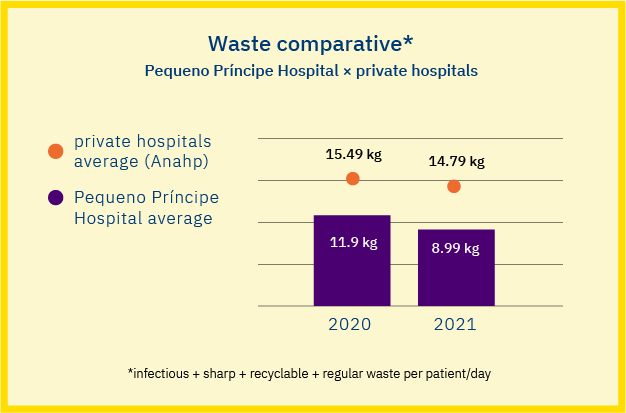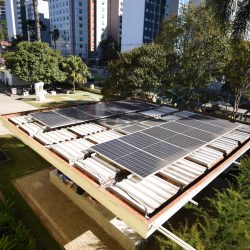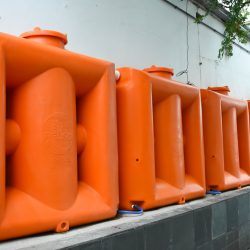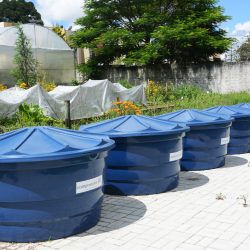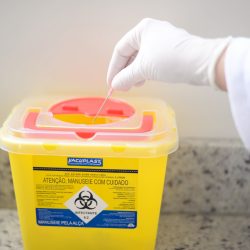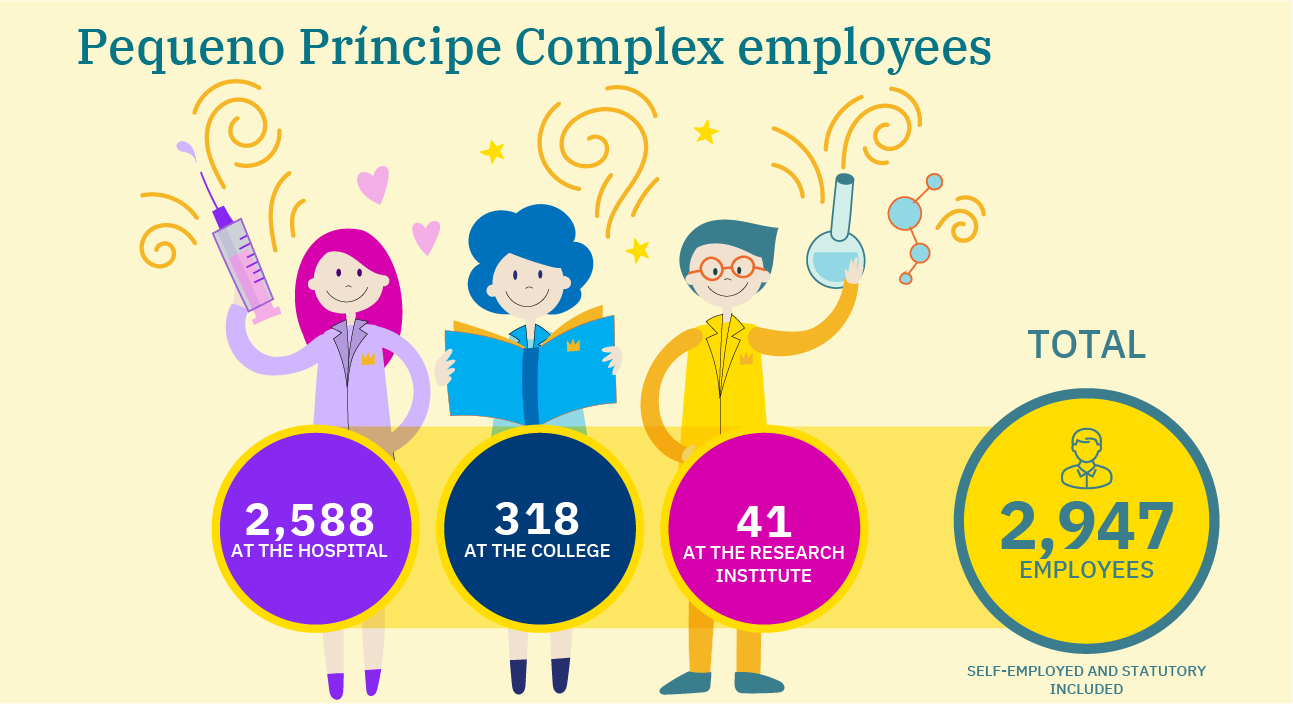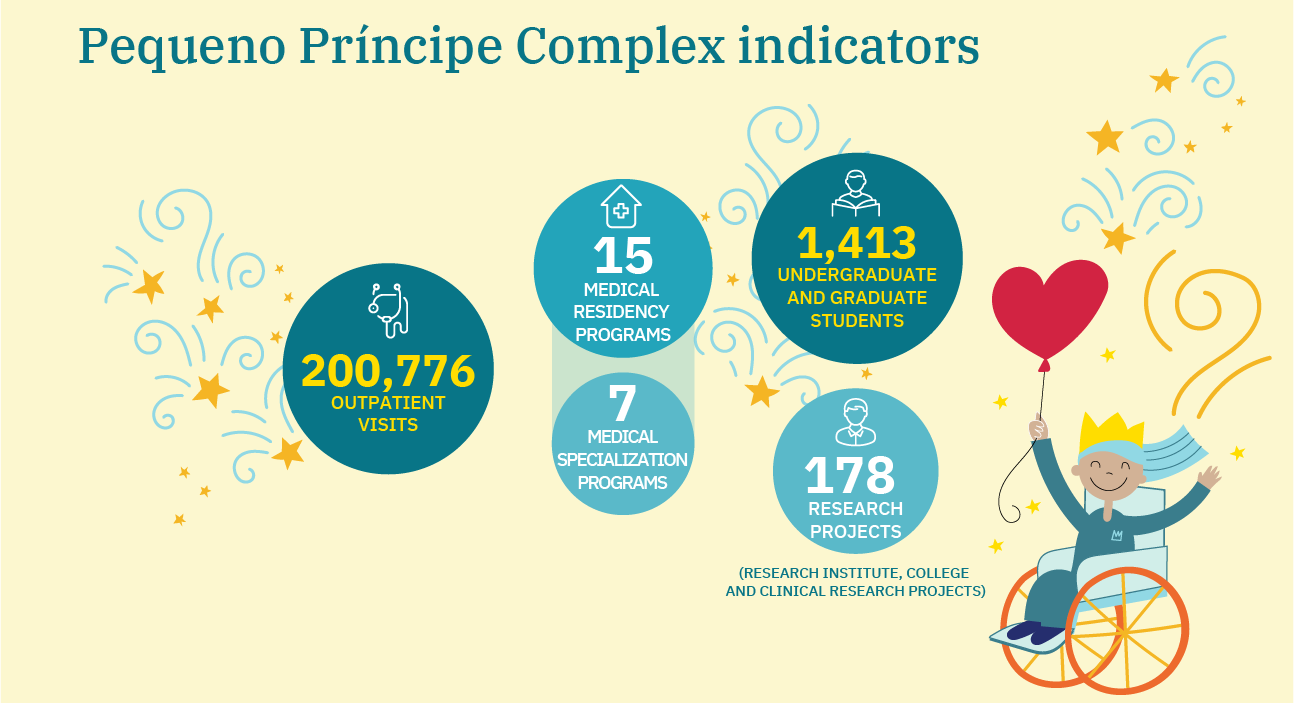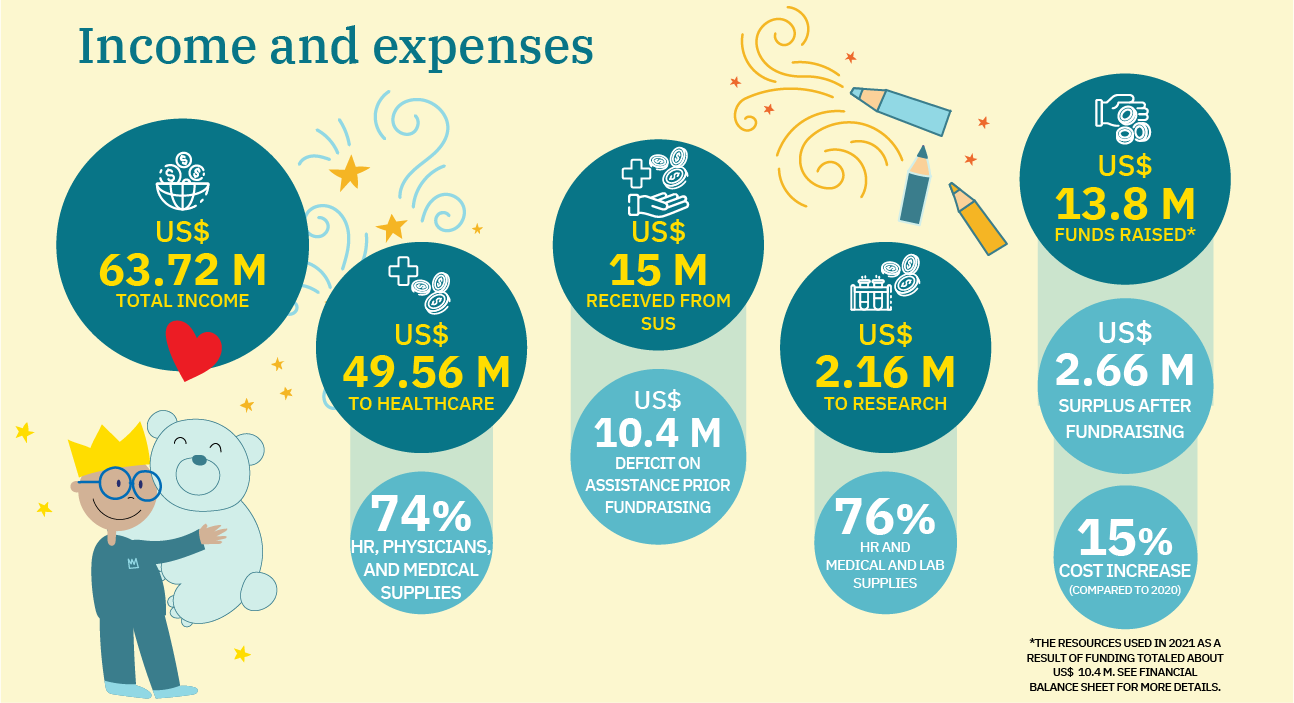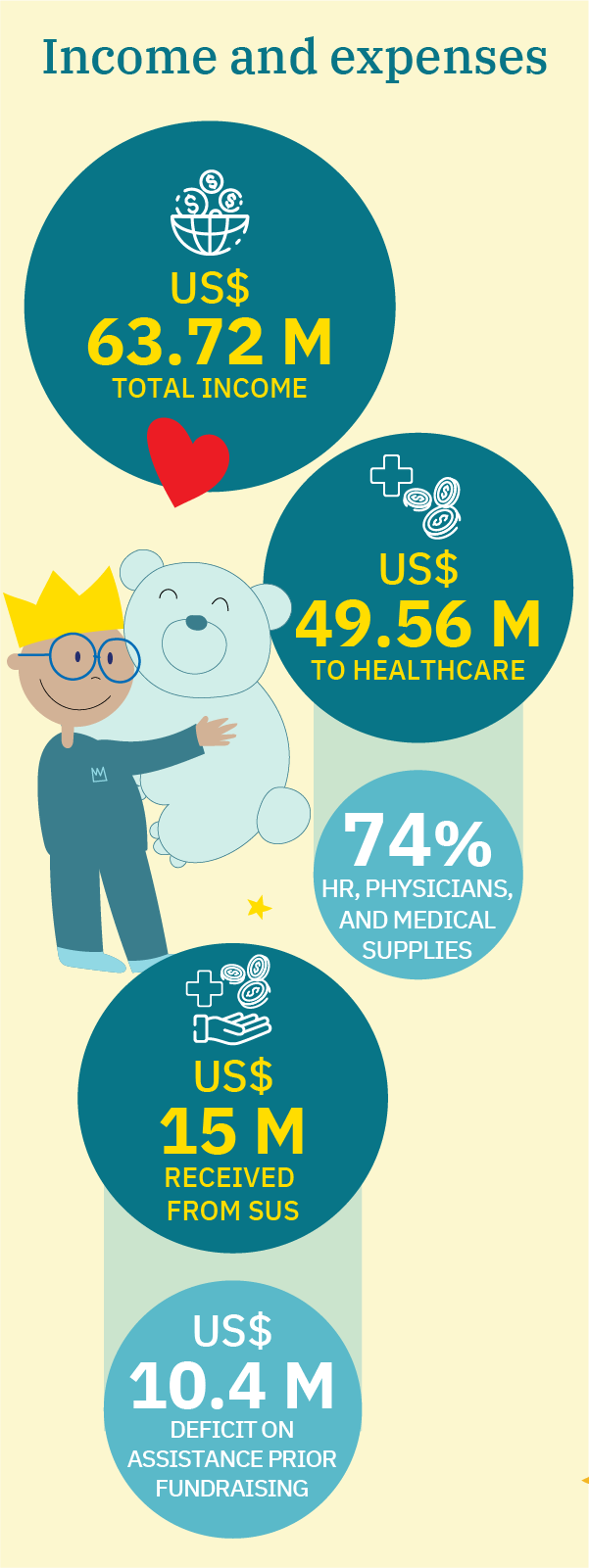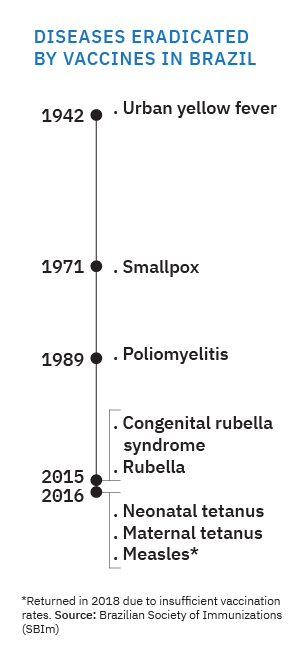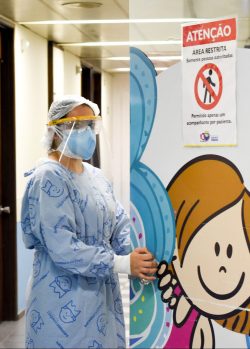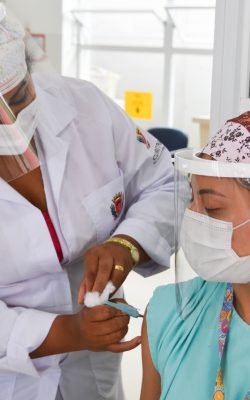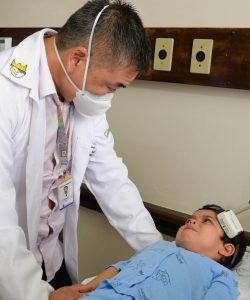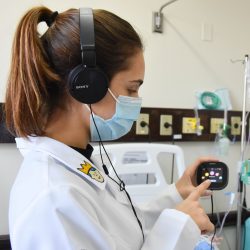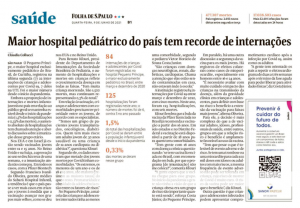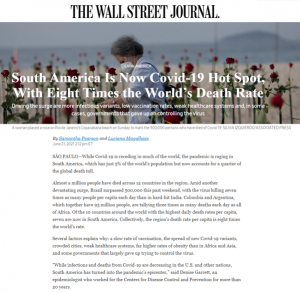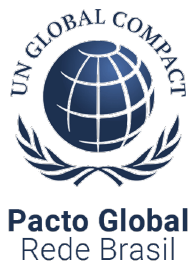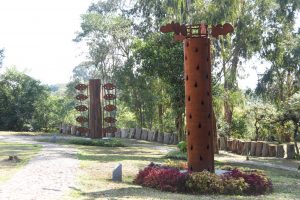
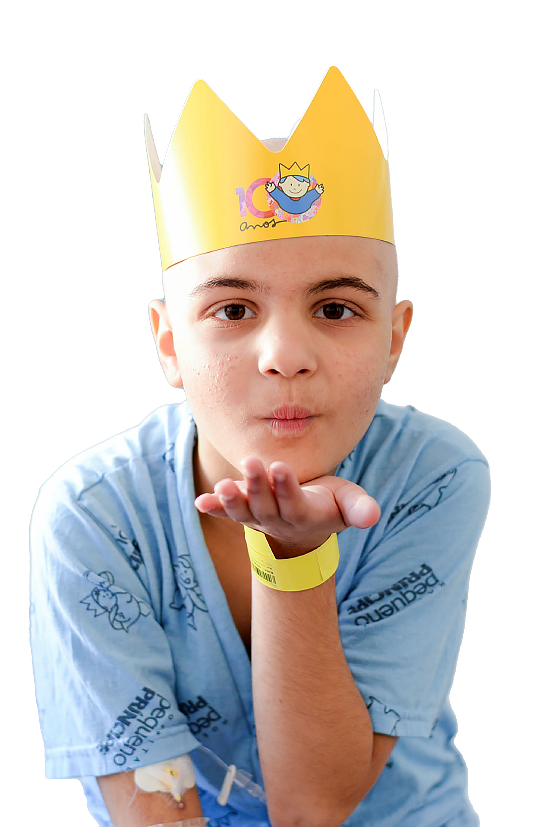

“Science is not about a choice. It is a need.”
Marcelo Gleiser,
physicist and astronomer
The year of the vaccine
When the Pequeno Príncipe Hospital was founded in 1919, still under the name Instituto de Higiene Infantil e Puericultura, urban yellow fever, smallpox, polio, rubella, congenital rubella syndrome, neonatal tetanus and measles affected (and even took) the lives of children. Gradually, all these diseases were eliminated, although some temporarily. Others claimed far more victims than they do today, such as diphtheria, flu, mumps, and tuberculosis.
Over these 102 years, the institution was able to accurately identify the decisive factor in the fight against such diseases: vaccines. Possibly they are, along with basic sanitation, the intervention that most saved lives in the history of humanity. According to the World Health Organization (WHO), vaccines prevent 2 million to 3 million deaths annually.
The year 2021 witnessed another milestone in this proven track record of success: COVID-19 vaccines were developed in record time and administered to 4.4 billion people – despite fake news campaigns. Only in this way, by investing in science, did one begin to overcome one of the greatest challenges in recent history. There was no other choice.
The prospect of defeating the coronavirus began to materialize in Brazil on February 17, when a nurse from São Paulo received the first dose of the immunizer against the disease. At Pequeno Príncipe Complex, vaccination of employees began 12 days later. As a result, professionals were able to carry out their activities with more safety and optimism – even though 2021 would prove to be, both in Brazil and in the rest of the world, the deadliest year among all pandemic.
Subsequently to immunization – combined with the resilience and engagement of the teams, noted since the beginning of the health crisis –, it was possible to increase the number of medical procedures, expand on-site activities in different areas of the Complex and conduct a series of structural reforms in a more placid way. The support from civil society and the public sector was paramount for the institution to achieve these results.
The path to controlling the pandemic, in the opinion of the Pequeno Príncipe Complex, went through strategies that echo in each of the institution’s pillars: investment in research (the basis for the work of the Pelé Pequeno Príncipe Research Institute), the dissemination of supported knowledge for science (basis for the activities of Pequeno Príncipe College) and the vision that health is a human right, fundamentally accessible to all (basis for the activities of Pequeno Príncipe Hospital).
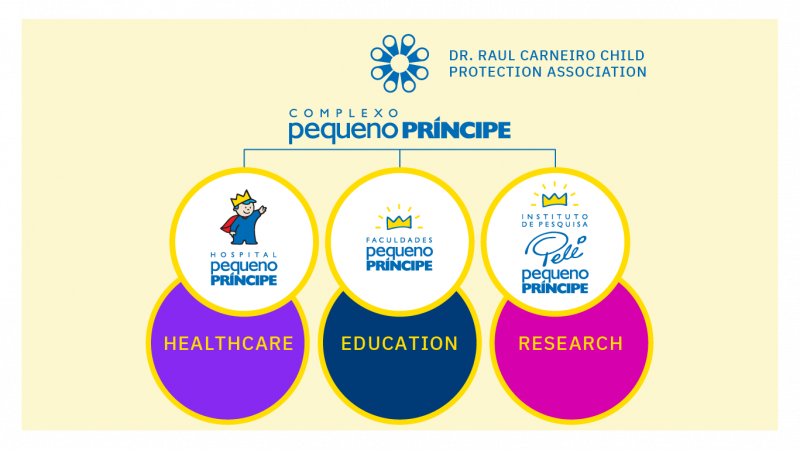
Love for children guides our actions.
Dr. Raul Carneiro Children Protection Hospital Association
Protect children and adolescents through assistance, teaching, health research and social mobilization, strengthening the family nucleus.
Pequeno Príncipe Hospital
Promoting the health of children and adolescents through assistance, teaching and research.
Pequeno Príncipe College
Produce and disseminate knowledge, aiming to contribute to the construction of a healthy, community-engaged and compassionate society, based on humanism and critical reflection on social reality.
Pelé Pequeno Príncipe Research Institute
Increase the percentage of cure for complex diseases in children and adolescents.
Financial statement: the cumulative effect of the pandemic
The second year of the pandemic brought difficult obstacles to the Complex. In 2020, the number of elective procedures had started to fall in March, different from 2021, when activities were impacted throughout the year.
2021 hard moments
- More assistance, although far from pre-pandemic levels
The number of outpatient visits, hospitalizations and surgeries increased compared to the previous year (26%, 26% and 21%, respectively), but remained well below pre-pandemic levels (see more on the Hospital page). The decline was greater among patients with health insurance. - More employees under sick leave
Until mid-2021, absences due to contagion by COVID-19 increased the need to hire replacement workers, which increased personnel expenses. On balance, the number of medical sick notes submitted by employees climbed 24% over the previous year. - Increase in assistance deficit
In 2021, the financial deficit in assistance (without considering the funds raised among society) took an important leap, around 70%. Historically, this deficit was around US$ 6.2 million, but in 2021 it went up to US$ 10.4 million, due to the sector’s underfinancing, rising inflation, personnel costs and other consequences of the pandemic. - One hard year after another
The largest obstacle, perhaps, was the cumulative effect: the difficulties of 2021 added to those of the previous year, already quite challenging.
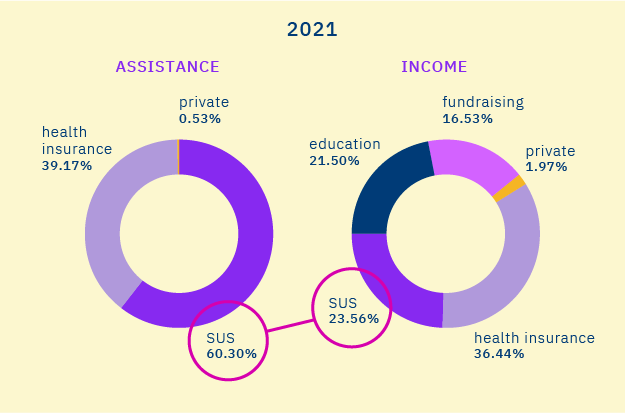
What is the impact of vaccination?
Vaccination was essential to improve the scenario. While the number of cases and deaths among the population skyrocketed at the end of the first semester, the conditions among health professionals began to become steady, as they were one of the first to be immunized. The general advance of vaccination, however, was slow. The age group most served by the Pequeno Príncipe Complex would only be vaccinated from 2022 onwards.
In any case, there was an evident reversal in the last quarter. The Hospital experienced of over a month without perceive a single positive case of coronavirus. The flow of patients for elective treatment began to show higher levels, indicating a beginning of recovery in the search for health services. This improvement, however, was broken at the end of December, when the omicron variant spread across Brazil, causing a new wave of employees on sick leave, and considerably increasing the number of children and adolescents infected by the coronavirus.
2021 positive moments
- More highly complex procedures
The pandemic did not prevent Pequeno Príncipe from achieving a historic outcome: 284 transplants were performed, which contributed to reinforcing the Hospital’s fundamental role in the care of high complexity. - Upholding of the SUS payment policy
The federal government kept the emergency measure in force since 2020, which enabled that the resources from the Public Health System (SUS, abbreviation in Portuguese) to maintain the 2019 production average. This was major to cover a large part of operating expenses. - Fundraising record
Pequeno Príncipe surpassed its annual target for the first time. More than US$ 13.8 million were raised in extra resources. - Stimulus to vaccination and monitoring of the pandemic
All frontline staff were quickly vaccinated against COVID-19, and over 90% of employees were fully immunized by June.


Getting our two feet in the future
Innovation along with structured management
The Complex had reinforced, in 2020, its commitment to works that seek innovative pediatric treatments, by launching the Innovation Office. In its second year, the area was consolidated, with the creation of an Innovation Council and the Guardians of Innovation group.
At the same time, the Office implemented internal communication actions to publicize its activities and disseminate content on innovation. In October – the National Month of Science, Technology and Innovation –, it held a series of live sessions that promoted the exchange of knowledge and debates on different topics, from the perspective of innovation.
Innovation that delivers results
The Innovation Office’s first major study bore fruit in 2021: validation for pediatric use of the brain4care, a device used to measure intracranial pressure without the need for invasive procedures.
The Complex also entered into a partnership with the startup Cloudia, which developed an assistant for attendance via artificial intelligence. Funded with support from Meta (the parent company of Facebook), the tool is used at Pequeno Príncipe to schedule tests for the diagnosis of COVID-19. The search for partners in the innovation industry also started projects involving medical device sensors, care digitization and telehealth applications.
Innovation in network
The institution strengthened its position with important networks of innovative organizations, increasing the prospects for new partnerships.
- Pequeno Príncipe Hospital was one of the winners of the award Campeãs de Inovação, sponsored by Grupo Amanhã and IXL-Center, from the United States.
- The Complex became an institutional partner of the Brazilian Society for the Advancement of Science (SBPC, abbreviation in Portuguese), the first step to membership.
- Pequeno Príncipe joined the health and biotechnology groups of the Innovation Ecosystem of Vale do Pinhão, covering Curitiba and the metropolitan region.
Safe and affordable telemedicine
The need for social isolation in the most acute phases of the COVID-19 pandemic has boosted interactive digital technologies in consultations, exams and in monitoring the health of millions of people around the world. In February 2021, Pequeno Príncipe consolidated the implementation of telemedicine for children and adolescents by launching its Telehealth Service, which ensured the continuity of care even at a distance, both for SUS patients and for the private modality.
The service uses tools developed for this purpose, which combine scientific methodology, security practices and privacy guarantees. With the support of the Global Health platform, the Hospital started to offer consultations in 13 pediatric specialties. Among other benefits, the platform was chosen for guaranteeing quality image and sound, confidentiality of the consultation and patient and family data, in addition to the safe prescription of medicines.
Another technological solution that came into operation was the TytoCare device, for exams and data transmission. Developed in Israel and already used in other countries, it began to be used at Pequeno Príncipe Hospital and Pequeno Príncipe College after a partnership between the Complex and Sabará Children’s Hospital, in São Paulo, and the Pensi Institute (Research and Teaching in Child Health), who came together to accelerate the startup Tuinda Care.
TytoCare enables accurate data, measures the patient’s temperature, monitors their heart rate, takes high-definition images of the throat and ear, and captures sounds from the abdomen. All data is transmitted to the doctor, who analyzes it to aid in the diagnosis.
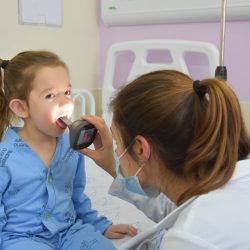
ECHO: a worldwide learning network
To improve the technical training of its health professionals, the Complex entered into a partnership with the Project ECHO (Extension for Community Healthcare Outcomes). The initiative, which already has more than 600 hubs around the world, offers online training and knowledge exchange. There are teleclinics and meetings to discuss cases and share experiences, which help to spread the best care practices, benefiting neglected populations and facing inequality in healthcare.
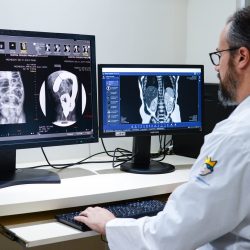
Reference in Brazil and worldwide acknowledgment
Due to its pioneering assistance in children’s health, technical-scientific excellence, and humanized care – built over its 102 years of history –, Pequeno Príncipe has become a national reference and has been gaining increased relevance in the Brazilian media. In 2021, the Complex’s units were featured in 2,200 reports by national media outlets, including for their role in the COVID-19 pandemic.
The recognition formally went beyond the borders of Brazil. Pequeno Príncipe was elected one of the 150 best pediatric hospitals on the planet, becoming part of the Newsweek magazine ranking. No other exclusively pediatric hospital in South America entered the list, which has only five other Brazilian institutions: they appear in the ranking, along with Pequeno Príncipe, A.C.Camargo Cancer Center, Hospital Sírio-Libanês, Hospital Israelita Albert Einstein, University Hospital of the Federal University of São Paulo (Unifesp) and Sepaco Hospital.
Review of strategic planning
Moments of crisis, such as the pandemic, are conducive to reflection. The challenges of the present and the obligation to look to the future in order to anticipate new realities led the direction of Pequeno Príncipe Complex to start an update of the institution’s strategic planning for the next five years. The process started in 2021, with the elaboration of the Hospital plan. The strategic planning for the College and the Research Institute will be conducted in 2022, when the planning of the Complex as a whole will be completed. This process is being supported by the Falconi consultancy, a reference in management and innovation. And for the acceleration of digital maturity, Folks was hired, specializing in the digital transformation of the healthcare area.
The challenges identified in the strategic planning 2022-2026
The process took place in four phases: the first of institutional diagnosis and definition of strategic issues; the second on the detailing of strategic options; the third for the elaboration of the strategic map and communication plan; and the fourth for the execution and control of the strategic planning.
Four axes were defined for the strategic guidance of the Hospital.
- Excellence in the execution of the strategy, through the improvement of management maturity aimed at results and the promotion of an institutional culture that drives the development and recognition of professionals.
- Improving the experience of patients and professionals, by modeling the patient’s journey; the expansion of specialties; the search for new ways to improve the experience of patients and professionals.
- Financial sustainability, seeking the efficiency of the current operation by using existing assets and exploring new revenues, expanding partnerships and new businesses.
- Pediatric hospital of the future, by way of cooperation between teaching and research, expanding training and translational medicine, broadening telehealth, and accelerating digital transformation.
This direction will include the unfolding of goals and indicators in each department, in addition to the implementation of initiatives and strategic projects that will have their results monitored over the next five years.
The expectation of the Pequeno Príncipe Complex is to yield the transformations aligned with the new post-pandemic reality towards the hospital of the future.



The role of sustainability
COVID-19 has made it clear: humanity needs to face global challenges together, through coordinated and multilateral actions. The pandemic is being a wake-up call, but there are other global emergencies going on. The “number one existential threat” is the triple challenge formed by climate change, loss of biodiversity and pollution, as the secretary-general of the United Nations (UN), António Guterres, warned in his inauguration speech for his second term, in 2021.
There are solutions to overcome this triple challenge. Such solutions explore 17 Sustainable Development Goals (SDGs), a set of social, economic and environmental goals from the UN 2030 Agenda.
For over a hundred years, Pequeno Príncipe has been guided by concerns similar to those that inspired the 2030 Agenda and, more recently, gave impetus to the ESG agenda – acronym for environmental, social and governance issues, increasingly taken into account by investors when analyzing risks and financial contributions.
In the 2000s, the institution adhered to projects related to the Millennium Development Goals, a set of eight major global goals assumed by UN member countries. In 2019, the Complex committed to the United Nations Global Compact. In addition to meeting the SDGs, participants must follow ten principles that advocate respect for human rights, labor and the environment and the fight against corruption.
The year 2021 had new milestones that reinforced the Complex’s commitment to sustainability. Check it out below.
- Offsetting carbon emissions
With the Carbon Neutral Program, Pequeno Príncipe became the second health institution in Brazil, and the first pediatric hospital, to offset the emission of greenhouse gases. A partnership with the Society for Wildlife Research and Environmental Education (SPVS) defined how to neutralize the 822 tons of carbon emitted by the Hospital in 2019, the base year of the project: through the protection and management of ten hectares (10,000 m²) of native forests of the Atlantic Forest in the Waters Natural Reserve, maintained by SPVS in the municipality of Antonina (state of Paraná). - Sculpture Park and Botanical Garden
On the same land that will house the Pequeno Príncipe North, a unit whose construction is scheduled to begin in 2022, the Sculpture Park – Sciences for Life was inaugurated. The green area located in the Bacacheri neighborhood, in Curitiba, received works by sculptors Elizabeth Titton, João Turin and Alfi Vivern. Opening to the public, Pequeno Príncipe provided the capital of Paraná with a space for contact with nature and art, which in the coming years will include a botanical garden included in the Complex’s expansion project. - Friend of the Environment Award
For the third year in a row, Pequeno Príncipe was awarded the Friend of the Environment Award, created by the São Paulo State Department of Health. In the 2021 edition, the Hospital was highlighted for its actions to reduce the use of natural resources, offset greenhouse gases emissions and help conserve biodiversity.
Less consumption, less waste generation
The greatest advances in environmental management, however, took place on a day-to-day basis, in the planning and execution of a series of measures to make the operation more environmentally correct.
The number of patients seen per day grew by 18% from 2020 to 2021, but electricity use increased much less. Waste generation and water consumption decreased. In all environmental indicators, Pequeno Príncipe Hospital performed better than the average of the National Association of Private Hospitals (Anahp). Have a look in the results by clicking on the tabs.
Total consumption rose by 1.5% in gross terms but declined in proportion to the number of visits. The increase compared to 2020 was precisely due to the greater flow of patients.

Consumption dropped 6.2% compared to 2020. The result is linked to awareness campaigns on the more sustainable use of this resource and the installation of eight cisterns at the Hospital to capture rainwater. The reduction was 21%, considering consumption per patient/day.
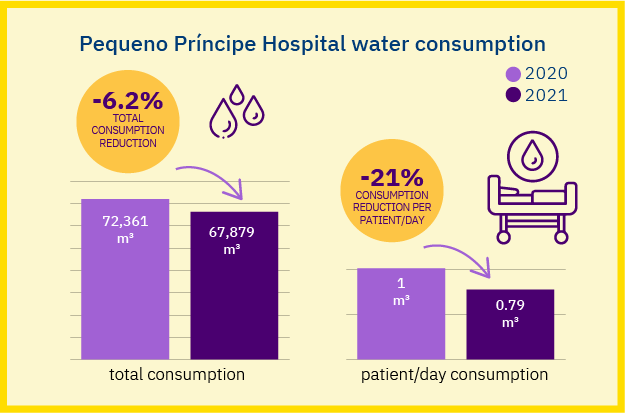
Compared to 2020, there was a reduction of 7.3%. A sizable portion of the percentage is due to the resumption of the Compostar Project, which upon remodeling, increased the volume of composted waste by 86%. The amount of recyclable waste decreased by 45%, an expected result given the greater number of employees still working from home throughout 2021.

The three types climbed, but in proportion to the number of patients, Pequeno Príncipe is better than the average of Brazilian private hospitals (Anahp). Even more: the interval between Pequeno Príncipe and the other institutions have increased.
The escalation in the generation of infectious waste (16.5%) was driven by the extra disposal of personal protective equipment (such as masks, caps, disposable aprons, and gloves), necessary to face the pandemic. The chemical waste (12.8%) applies to the increment of alcohol bottles and other sanitizers, also used in the fight against COVID-19. The growth in the volume of sharps (10%) was due to the greater amount of patients/day.

